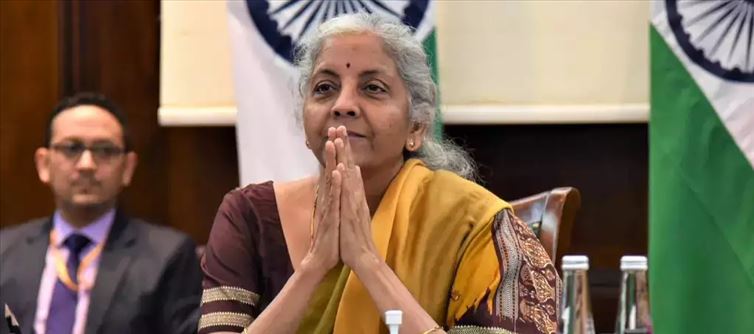
The Finance minister told the reporters today during the 55th GST Council meeting that the decision to lower the GST on rice kernels from 18% to 5% was made since the product is distributed to the less fortunate members of society through the public distribution system.
"Similarly, the concessional 5 percent GST is applicable on inputs of food preparations that are supplied for free distribution to economically weaker sections under government programs subject to existing conditions; so this is also an extension of the 5 percent rate that prevails," she said.
The Finance minister explained raising the tax on caramelized popcorn to 18 percent, stating that it featured added sugar, which was a different category, similar to carbonated drinks, which are unhealthy and so fall under a higher tax bracket.
She drew attention to the fact that plain and salted popcorn were equally available in the market and that their GST rates had not gone up.
She said that when an agriculturist supplies raisins and black pepper, whether it be dried black pepper or fresh green pepper, they are exempt from GST. However, businesses that sell these goods would be responsible for paying taxes.
She said that the GST exemption will remain in effect for all components, including software, utilized in the production of sam missiles.
The Finance minister added that payment gateways and fintech services are not exempt from this rule, however, payment aggregators that process transactions under Rs 2,000 are.
According to her, punitive costs or levies collected by banks and NBFCs for borrowers' noncompliance with loan terms are exempt from GST. Small companies would greatly benefit from this action.
The Finance minister went on to say that although the question of whether food delivery fees from rapid commerce businesses and e-commerce applications should be subject to a separate GST was discussed at the meeting, no decision has been made. She said that the Council believed additional in-depth talks on the matter were necessary.
Additionally, according to the Finance minister, ACC blocks that include more than 50% fly ash would be subject to 12% GST.
Due to opposition from several states, Sitharaman revealed that no decision has been reached on whether to include Aviation Turbine Fuel (ATF) under the GST structure. Future sessions are anticipated to include more discussions on the matter.
She said that additional time is needed to make a judgment on the matter because the GoM on health insurance has not yet received information from the insurance regulator, IRDAI.
She noted that more time is required for the GoM on rate rationalization because the report has not yet been completed.
The Council deliberated whether the GST on the floor space index (FSI) for buildings should be on the forward charge or the reverse charge, the Finance minister added. Because it affects municipal revenue and because land is a state concern, no decision was made on the matter.
She also revealed that the GST Council has approved a concept note in principle to alter the GST to facilitate registration for small businesses that receive low input tax credits. Since these businesses are having trouble registering, it has been decided to streamline the system to make things easier for them.
A change to the definition of packed and labeled goods meant for retail sale has been authorized by the Council. Since there is now a lot of misunderstanding over the matter, the move aims to clarify the definition for all commodities, Sitharaman continued.




 click and follow Indiaherald WhatsApp channel
click and follow Indiaherald WhatsApp channel